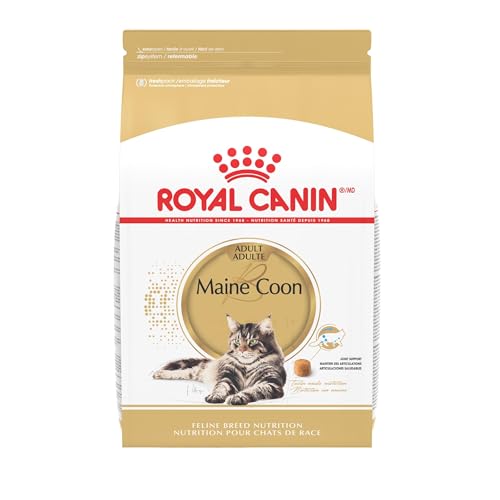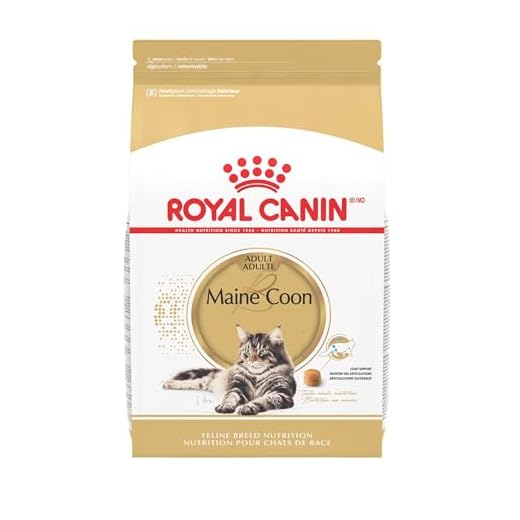



Bringing home a large feline companion can range from $800 to $3,000, depending on various factors. The initial price tag often reflects the pedigree, breeder reputation, and location. To ensure you’re investing wisely, research reputable breeders who prioritize health and temperament.
Beyond the purchase price, consider the ongoing expenses. Monthly supplies such as high-quality food, litter, and regular veterinary visits can accumulate. Budgeting around $100 to $200 per month will help cover these essentials, including vaccinations and preventative care.
Finally, be prepared for potential unexpected expenses. Health issues or emergencies can arise, so setting aside a savings fund is wise. Overall, owning a large feline is a rewarding adventure, but being financially prepared is crucial to ensure their well-being and happiness.
Cost Breakdown for a Feline Companion
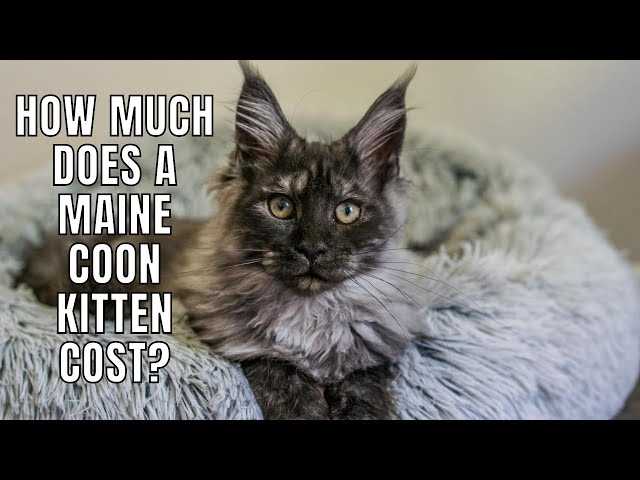
Adopting one of these majestic breeds can set you back anywhere from $800 to $2,000 depending on the breeder, location, and lineage. Reputable breeders tend to charge more due to rigorous health tests and quality assurance.
Initial expenses don’t stop there. You’ll need to factor in vaccinations, spaying or neutering, and microchipping, which can add another $200 to $500. Regular vet visits for check-ups and vaccinations are crucial, with annual costs typically around $100 to $300.
Food and supplies are ongoing costs that shouldn’t be overlooked. Premium quality cat food suitable for larger breeds can run about $50 to $100 per month. Additionally, essentials like litter boxes, scratching posts, and toys can total $100 to $300 in your first year.
For those considering declawing, be aware that this procedure can add $100 to $500 to your initial expenses. It’s also important to choose suitable litter for declawed pets; you can find recommendations for the best kitty litter for declawed cats on my site.
In conclusion, the financial commitment for this breed transcends the initial purchase price, so be prepared for ongoing costs to ensure a happy and healthy life for your new friend.
Initial Purchase Costs of Maine Coon Cats
When considering bringing one of these magnificent felines into your home, expect to invest between $800 and $2,000 upfront. The price varies based on factors such as pedigree, breeder reputation, and location.
Opting for a kitten from a reputable breeder ensures health and lineage. Responsible breeders conduct genetic testing, vaccinations, and socialization, which contribute to higher prices. Avoid backyard breeders to prevent health issues later.
If you prefer adopting, local shelters and rescue organizations often have these charming cats available for a fraction of the cost. Adoption fees typically range from $100 to $300, including initial vaccinations and spaying or neutering.
Consider additional expenses such as transportation, initial supplies, and basic veterinary costs. Investing in quality food is crucial for your new companion’s health. Check out the best food for bombay cats to ensure you’re providing the right nutrition.
Remember, the initial financial commitment is just the beginning of your adventure together. Be prepared for ongoing care and maintenance expenses to ensure a happy and healthy life for your new furry friend.
Ongoing Expenses: Food and Health Care
For anyone considering bringing a fluffy friend into their home, budget for quality nutrition and healthcare. High-quality food is a must, and I recommend a premium brand tailored for larger breeds. Expect to spend around $50 to $100 monthly, depending on your furry companion’s appetite and dietary needs.
Nutrition
Choosing the right food is crucial for maintaining health. Look for options rich in protein and low in fillers. Supplementing with wet food can provide extra hydration and is generally more appealing. Be prepared to adjust quantities as your feline grows, and always consult with a veterinarian regarding dietary changes.
Healthcare
Regular vet visits are essential. Routine check-ups, vaccinations, and preventative treatments like flea and tick control can add up to about $200 to $400 annually. Dental care is often overlooked; consider dental treats or professional cleanings to avoid costly procedures down the line. Emergency situations can arise, so setting aside an additional fund for unexpected health issues is wise. A good rule of thumb is to save around $500 yearly for such instances.
With proper planning for feeding and healthcare, you can ensure a happy and healthy life for your beloved companion.
Factors Influencing Maine Coon Prices
The cost of acquiring a large feline companion can vary significantly. Here are the main factors determining the price range:
Pedigree and Breeding
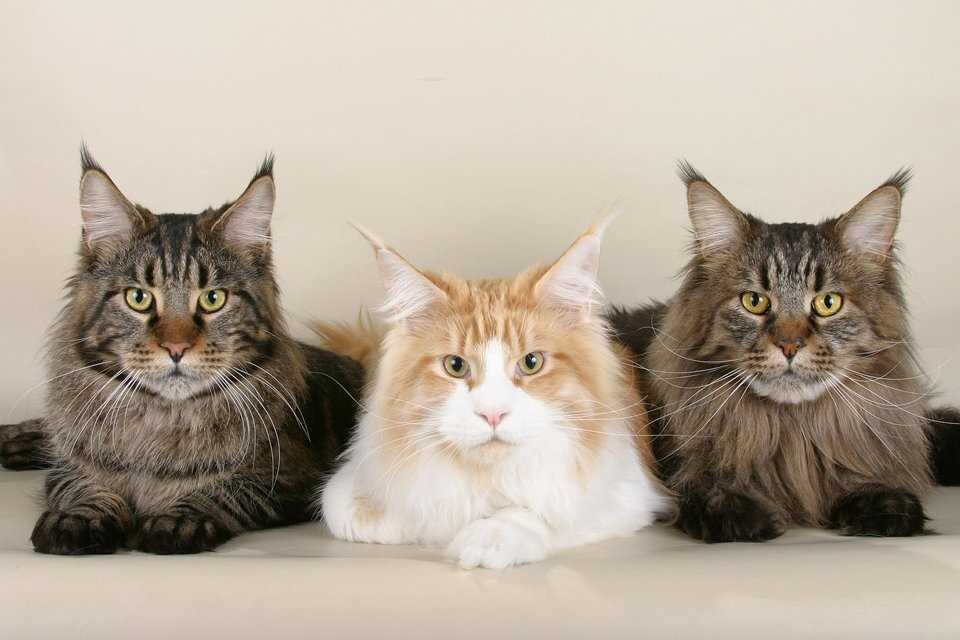
- Purebred lineage can drive prices upwards, especially if the parents have won awards or are from reputable breeders.
- Breeders who focus on quality and health testing tend to charge more due to their commitment to the breed’s standards.
- Litters with rare colors or patterns may also see increased pricing.
Location and Demand
- Geographical area impacts pricing; urban regions often have higher costs due to demand.
- Local regulations and market saturation can influence how much one pays.
- Seasonal trends, such as holidays, can also affect availability and pricing.
Additional costs may arise from health care and grooming needs, which should be factored into the total financial commitment. Understanding these elements helps in making an informed decision before bringing one of these gentle giants home.
Cost Comparison: Breeder vs. Adoption
Choosing between getting a feline companion from a breeder or an adoption center involves distinct financial aspects. Generally, purchasing from a breeder can range from $800 to $2,000, depending on lineage and breeder reputation. This initial payment often covers vaccinations, microchipping, and sometimes a starter kit with food and toys.
On the flip side, adoption fees at shelters typically range from $50 to $200, which often includes vaccinations, spaying or neutering, and a health check. This option not only saves money but also gives a home to a deserving animal.
Long-term Financial Implications
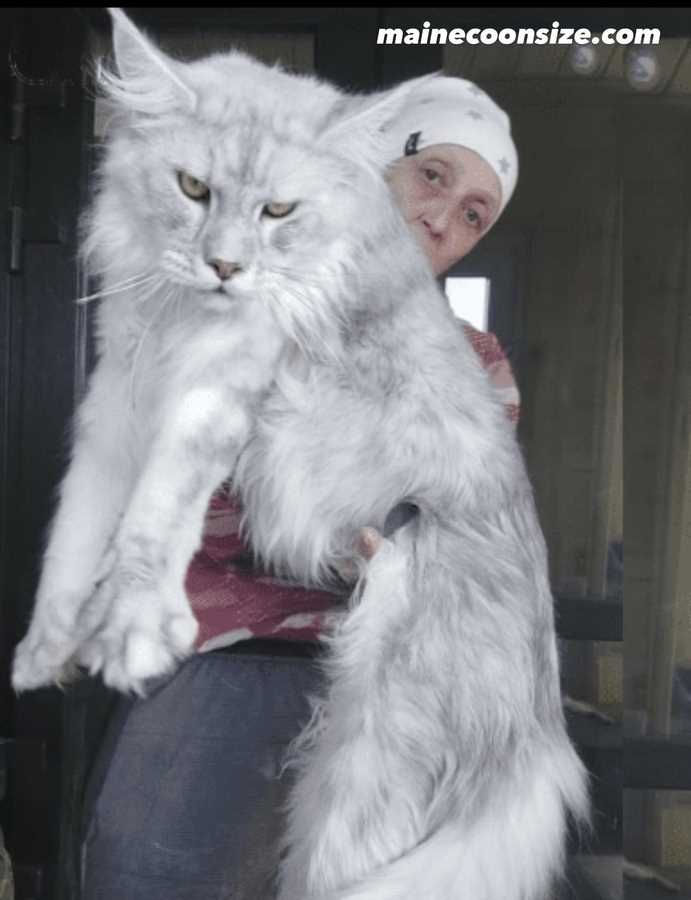
When considering long-term costs, a pet from a breeder might lead to higher insurance premiums and medical expenses if specific genetic conditions arise. In contrast, adopted pets may have unknown backgrounds, which can lead to unexpected health costs. However, many shelters provide thorough health checks and can give insights into any existing conditions.
Overall Value
While breeders offer the allure of purebred lineage and predictability in appearance and temperament, adoption promotes a rescue mission that can be just as fulfilling. Financially, adoption is often more accessible and aligns with a compassionate approach to pet ownership.
FAQ:
What is the average cost of a Maine Coon cat?
The average cost of a Maine Coon cat typically ranges from $800 to $2,000. Factors influencing the price include the cat’s lineage, age, and the breeder’s reputation. Purebred Maine Coons tend to be on the higher end of this spectrum due to their desirable traits and the efforts that breeders put into maintaining breed standards.
Are there any additional expenses I should consider when adopting a Maine Coon?
Yes, there are several additional expenses to consider. These may include routine veterinary care such as vaccinations, spaying or neutering, and annual check-ups, which can total several hundred dollars annually. You should also budget for food, litter, toys, and grooming supplies. Maine Coons have long fur, so regular grooming is necessary to prevent matting, which could lead to higher grooming costs.
Why do Maine Coons tend to be more expensive than other cat breeds?
Maine Coons are often more expensive due to their popularity, distinctive appearance, and the care required in breeding them. Responsible breeders invest significant time and resources into ensuring the health and quality of their cats, including genetic testing and proper socialization. This dedication to quality often results in higher prices compared to more common or less sought-after breeds.
Can I find Maine Coon cats at shelters or rescues, and how much do they cost there?
Yes, Maine Coons can sometimes be found at animal shelters or rescue organizations. The adoption fee for a Maine Coon at a shelter typically ranges from $100 to $300. This fee usually includes vaccinations, spaying or neutering, and a health check. Adopting from a shelter can be a more affordable option, and it also helps provide a home to a cat in need.
What factors can influence the price of a Maine Coon cat?
Several factors can influence the price of a Maine Coon cat. These include the cat’s pedigree, age, and the breeder’s location. For example, cats from champion lines or those that have won awards may be priced higher. Additionally, geographical location can play a role; prices may vary significantly between urban and rural areas. Other considerations include the cat’s color and markings, as certain traits may be more sought after.
Bringing home a large feline companion can range from $800 to $3,000, depending on various factors. The initial price tag often reflects the pedigree, breeder reputation, and location. To ensure you’re investing wisely, research reputable breeders who prioritize health and temperament.
Beyond the purchase price, consider the ongoing expenses. Monthly supplies such as high-quality food, litter, and regular veterinary visits can accumulate. Budgeting around $100 to $200 per month will help cover these essentials, including vaccinations and preventative care.
Finally, be prepared for potential unexpected expenses. Health issues or emergencies can arise, so setting aside a savings fund is wise. Overall, owning a large feline is a rewarding adventure, but being financially prepared is crucial to ensure their well-being and happiness.
Cost Breakdown for a Feline Companion

Adopting one of these majestic breeds can set you back anywhere from $800 to $2,000 depending on the breeder, location, and lineage. Reputable breeders tend to charge more due to rigorous health tests and quality assurance.
Initial expenses don’t stop there. You’ll need to factor in vaccinations, spaying or neutering, and microchipping, which can add another $200 to $500. Regular vet visits for check-ups and vaccinations are crucial, with annual costs typically around $100 to $300.
Food and supplies are ongoing costs that shouldn’t be overlooked. Premium quality cat food suitable for larger breeds can run about $50 to $100 per month. Additionally, essentials like litter boxes, scratching posts, and toys can total $100 to $300 in your first year.
For those considering declawing, be aware that this procedure can add $100 to $500 to your initial expenses. It’s also important to choose suitable litter for declawed pets; you can find recommendations for the best kitty litter for declawed cats on my site.
In conclusion, the financial commitment for this breed transcends the initial purchase price, so be prepared for ongoing costs to ensure a happy and healthy life for your new friend.
Initial Purchase Costs of Maine Coon Cats
When considering bringing one of these magnificent felines into your home, expect to invest between $800 and $2,000 upfront. The price varies based on factors such as pedigree, breeder reputation, and location.
Opting for a kitten from a reputable breeder ensures health and lineage. Responsible breeders conduct genetic testing, vaccinations, and socialization, which contribute to higher prices. Avoid backyard breeders to prevent health issues later.
If you prefer adopting, local shelters and rescue organizations often have these charming cats available for a fraction of the cost. Adoption fees typically range from $100 to $300, including initial vaccinations and spaying or neutering.
Consider additional expenses such as transportation, initial supplies, and basic veterinary costs. Investing in quality food is crucial for your new companion’s health. Check out the best food for bombay cats to ensure you’re providing the right nutrition.
Remember, the initial financial commitment is just the beginning of your adventure together. Be prepared for ongoing care and maintenance expenses to ensure a happy and healthy life for your new furry friend.
Ongoing Expenses: Food and Health Care
For anyone considering bringing a fluffy friend into their home, budget for quality nutrition and healthcare. High-quality food is a must, and I recommend a premium brand tailored for larger breeds. Expect to spend around $50 to $100 monthly, depending on your furry companion’s appetite and dietary needs.
Nutrition
Choosing the right food is crucial for maintaining health. Look for options rich in protein and low in fillers. Supplementing with wet food can provide extra hydration and is generally more appealing. Be prepared to adjust quantities as your feline grows, and always consult with a veterinarian regarding dietary changes.
Healthcare
Regular vet visits are essential. Routine check-ups, vaccinations, and preventative treatments like flea and tick control can add up to about $200 to $400 annually. Dental care is often overlooked; consider dental treats or professional cleanings to avoid costly procedures down the line. Emergency situations can arise, so setting aside an additional fund for unexpected health issues is wise. A good rule of thumb is to save around $500 yearly for such instances.
With proper planning for feeding and healthcare, you can ensure a happy and healthy life for your beloved companion.
Factors Influencing Maine Coon Prices
The cost of acquiring a large feline companion can vary significantly. Here are the main factors determining the price range:
Pedigree and Breeding

- Purebred lineage can drive prices upwards, especially if the parents have won awards or are from reputable breeders.
- Breeders who focus on quality and health testing tend to charge more due to their commitment to the breed’s standards.
- Litters with rare colors or patterns may also see increased pricing.
Location and Demand
- Geographical area impacts pricing; urban regions often have higher costs due to demand.
- Local regulations and market saturation can influence how much one pays.
- Seasonal trends, such as holidays, can also affect availability and pricing.
Additional costs may arise from health care and grooming needs, which should be factored into the total financial commitment. Understanding these elements helps in making an informed decision before bringing one of these gentle giants home.
Cost Comparison: Breeder vs. Adoption
Choosing between getting a feline companion from a breeder or an adoption center involves distinct financial aspects. Generally, purchasing from a breeder can range from $800 to $2,000, depending on lineage and breeder reputation. This initial payment often covers vaccinations, microchipping, and sometimes a starter kit with food and toys.
On the flip side, adoption fees at shelters typically range from $50 to $200, which often includes vaccinations, spaying or neutering, and a health check. This option not only saves money but also gives a home to a deserving animal.
Long-term Financial Implications

When considering long-term costs, a pet from a breeder might lead to higher insurance premiums and medical expenses if specific genetic conditions arise. In contrast, adopted pets may have unknown backgrounds, which can lead to unexpected health costs. However, many shelters provide thorough health checks and can give insights into any existing conditions.
Overall Value
While breeders offer the allure of purebred lineage and predictability in appearance and temperament, adoption promotes a rescue mission that can be just as fulfilling. Financially, adoption is often more accessible and aligns with a compassionate approach to pet ownership.
FAQ:
What is the average cost of a Maine Coon cat?
The average cost of a Maine Coon cat typically ranges from $800 to $2,000. Factors influencing the price include the cat’s lineage, age, and the breeder’s reputation. Purebred Maine Coons tend to be on the higher end of this spectrum due to their desirable traits and the efforts that breeders put into maintaining breed standards.
Are there any additional expenses I should consider when adopting a Maine Coon?
Yes, there are several additional expenses to consider. These may include routine veterinary care such as vaccinations, spaying or neutering, and annual check-ups, which can total several hundred dollars annually. You should also budget for food, litter, toys, and grooming supplies. Maine Coons have long fur, so regular grooming is necessary to prevent matting, which could lead to higher grooming costs.
Why do Maine Coons tend to be more expensive than other cat breeds?
Maine Coons are often more expensive due to their popularity, distinctive appearance, and the care required in breeding them. Responsible breeders invest significant time and resources into ensuring the health and quality of their cats, including genetic testing and proper socialization. This dedication to quality often results in higher prices compared to more common or less sought-after breeds.
Can I find Maine Coon cats at shelters or rescues, and how much do they cost there?
Yes, Maine Coons can sometimes be found at animal shelters or rescue organizations. The adoption fee for a Maine Coon at a shelter typically ranges from $100 to $300. This fee usually includes vaccinations, spaying or neutering, and a health check. Adopting from a shelter can be a more affordable option, and it also helps provide a home to a cat in need.
What factors can influence the price of a Maine Coon cat?
Several factors can influence the price of a Maine Coon cat. These include the cat’s pedigree, age, and the breeder’s location. For example, cats from champion lines or those that have won awards may be priced higher. Additionally, geographical location can play a role; prices may vary significantly between urban and rural areas. Other considerations include the cat’s color and markings, as certain traits may be more sought after.
Bringing home a large feline companion can range from $800 to $3,000, depending on various factors. The initial price tag often reflects the pedigree, breeder reputation, and location. To ensure you’re investing wisely, research reputable breeders who prioritize health and temperament.
Beyond the purchase price, consider the ongoing expenses. Monthly supplies such as high-quality food, litter, and regular veterinary visits can accumulate. Budgeting around $100 to $200 per month will help cover these essentials, including vaccinations and preventative care.
Finally, be prepared for potential unexpected expenses. Health issues or emergencies can arise, so setting aside a savings fund is wise. Overall, owning a large feline is a rewarding adventure, but being financially prepared is crucial to ensure their well-being and happiness.
Cost Breakdown for a Feline Companion

Adopting one of these majestic breeds can set you back anywhere from $800 to $2,000 depending on the breeder, location, and lineage. Reputable breeders tend to charge more due to rigorous health tests and quality assurance.
Initial expenses don’t stop there. You’ll need to factor in vaccinations, spaying or neutering, and microchipping, which can add another $200 to $500. Regular vet visits for check-ups and vaccinations are crucial, with annual costs typically around $100 to $300.
Food and supplies are ongoing costs that shouldn’t be overlooked. Premium quality cat food suitable for larger breeds can run about $50 to $100 per month. Additionally, essentials like litter boxes, scratching posts, and toys can total $100 to $300 in your first year.
For those considering declawing, be aware that this procedure can add $100 to $500 to your initial expenses. It’s also important to choose suitable litter for declawed pets; you can find recommendations for the best kitty litter for declawed cats on my site.
In conclusion, the financial commitment for this breed transcends the initial purchase price, so be prepared for ongoing costs to ensure a happy and healthy life for your new friend.
Initial Purchase Costs of Maine Coon Cats
When considering bringing one of these magnificent felines into your home, expect to invest between $800 and $2,000 upfront. The price varies based on factors such as pedigree, breeder reputation, and location.
Opting for a kitten from a reputable breeder ensures health and lineage. Responsible breeders conduct genetic testing, vaccinations, and socialization, which contribute to higher prices. Avoid backyard breeders to prevent health issues later.
If you prefer adopting, local shelters and rescue organizations often have these charming cats available for a fraction of the cost. Adoption fees typically range from $100 to $300, including initial vaccinations and spaying or neutering.
Consider additional expenses such as transportation, initial supplies, and basic veterinary costs. Investing in quality food is crucial for your new companion’s health. Check out the best food for bombay cats to ensure you’re providing the right nutrition.
Remember, the initial financial commitment is just the beginning of your adventure together. Be prepared for ongoing care and maintenance expenses to ensure a happy and healthy life for your new furry friend.
Ongoing Expenses: Food and Health Care
For anyone considering bringing a fluffy friend into their home, budget for quality nutrition and healthcare. High-quality food is a must, and I recommend a premium brand tailored for larger breeds. Expect to spend around $50 to $100 monthly, depending on your furry companion’s appetite and dietary needs.
Nutrition
Choosing the right food is crucial for maintaining health. Look for options rich in protein and low in fillers. Supplementing with wet food can provide extra hydration and is generally more appealing. Be prepared to adjust quantities as your feline grows, and always consult with a veterinarian regarding dietary changes.
Healthcare
Regular vet visits are essential. Routine check-ups, vaccinations, and preventative treatments like flea and tick control can add up to about $200 to $400 annually. Dental care is often overlooked; consider dental treats or professional cleanings to avoid costly procedures down the line. Emergency situations can arise, so setting aside an additional fund for unexpected health issues is wise. A good rule of thumb is to save around $500 yearly for such instances.
With proper planning for feeding and healthcare, you can ensure a happy and healthy life for your beloved companion.
Factors Influencing Maine Coon Prices
The cost of acquiring a large feline companion can vary significantly. Here are the main factors determining the price range:
Pedigree and Breeding

- Purebred lineage can drive prices upwards, especially if the parents have won awards or are from reputable breeders.
- Breeders who focus on quality and health testing tend to charge more due to their commitment to the breed’s standards.
- Litters with rare colors or patterns may also see increased pricing.
Location and Demand
- Geographical area impacts pricing; urban regions often have higher costs due to demand.
- Local regulations and market saturation can influence how much one pays.
- Seasonal trends, such as holidays, can also affect availability and pricing.
Additional costs may arise from health care and grooming needs, which should be factored into the total financial commitment. Understanding these elements helps in making an informed decision before bringing one of these gentle giants home.
Cost Comparison: Breeder vs. Adoption
Choosing between getting a feline companion from a breeder or an adoption center involves distinct financial aspects. Generally, purchasing from a breeder can range from $800 to $2,000, depending on lineage and breeder reputation. This initial payment often covers vaccinations, microchipping, and sometimes a starter kit with food and toys.
On the flip side, adoption fees at shelters typically range from $50 to $200, which often includes vaccinations, spaying or neutering, and a health check. This option not only saves money but also gives a home to a deserving animal.
Long-term Financial Implications

When considering long-term costs, a pet from a breeder might lead to higher insurance premiums and medical expenses if specific genetic conditions arise. In contrast, adopted pets may have unknown backgrounds, which can lead to unexpected health costs. However, many shelters provide thorough health checks and can give insights into any existing conditions.
Overall Value
While breeders offer the allure of purebred lineage and predictability in appearance and temperament, adoption promotes a rescue mission that can be just as fulfilling. Financially, adoption is often more accessible and aligns with a compassionate approach to pet ownership.
FAQ:
What is the average cost of a Maine Coon cat?
The average cost of a Maine Coon cat typically ranges from $800 to $2,000. Factors influencing the price include the cat’s lineage, age, and the breeder’s reputation. Purebred Maine Coons tend to be on the higher end of this spectrum due to their desirable traits and the efforts that breeders put into maintaining breed standards.
Are there any additional expenses I should consider when adopting a Maine Coon?
Yes, there are several additional expenses to consider. These may include routine veterinary care such as vaccinations, spaying or neutering, and annual check-ups, which can total several hundred dollars annually. You should also budget for food, litter, toys, and grooming supplies. Maine Coons have long fur, so regular grooming is necessary to prevent matting, which could lead to higher grooming costs.
Why do Maine Coons tend to be more expensive than other cat breeds?
Maine Coons are often more expensive due to their popularity, distinctive appearance, and the care required in breeding them. Responsible breeders invest significant time and resources into ensuring the health and quality of their cats, including genetic testing and proper socialization. This dedication to quality often results in higher prices compared to more common or less sought-after breeds.
Can I find Maine Coon cats at shelters or rescues, and how much do they cost there?
Yes, Maine Coons can sometimes be found at animal shelters or rescue organizations. The adoption fee for a Maine Coon at a shelter typically ranges from $100 to $300. This fee usually includes vaccinations, spaying or neutering, and a health check. Adopting from a shelter can be a more affordable option, and it also helps provide a home to a cat in need.
What factors can influence the price of a Maine Coon cat?
Several factors can influence the price of a Maine Coon cat. These include the cat’s pedigree, age, and the breeder’s location. For example, cats from champion lines or those that have won awards may be priced higher. Additionally, geographical location can play a role; prices may vary significantly between urban and rural areas. Other considerations include the cat’s color and markings, as certain traits may be more sought after.

